Electrical

Electrical
Your home demands proper upkeep, and electricity is a pivotal aspect often neglected. Amidst the daily convenience it brings, the care of your home's electrical system is paramount.
Electricity, integral to our lives, must not be overlooked. As a homeowner, safeguarding your electrical system ranks among top priorities. Neglect can lead to hazards and accidents, from fires due to faulty wiring to potential electric shocks.
Faulty wiring, damaged outlets, and outdated systems can trigger fires, with around 3,300 home fires annually. Preventable through simple precautions, these issues underscore the need for maintenance.
Beyond fire risks, an ill-maintained system can pose electrocution threats. Well-kept systems ward off these dangers.
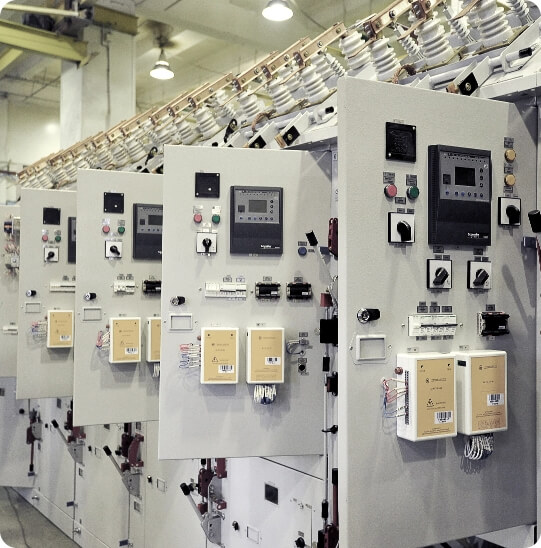
Your Home’s Energy: The Basics
Your home's electrical journey begins with the utility connection, meter, and service cables, linking to the utility's meter base. Electricity enters in two ways:
Line Portion
Managed by the utility company, it extends up to your home.
Load Side
Within your home, your responsibility for maintenance begins. Don't overlook the core of your home's functionality – care for its electrical well-being.
SERVICE PANEL/BREAKER BOX
ELECTRICAL METER
POWER LINES
CIRCUIT BREAKER
BRANCH CIRCUITS
INDIVIDUAL RECEPTACLES
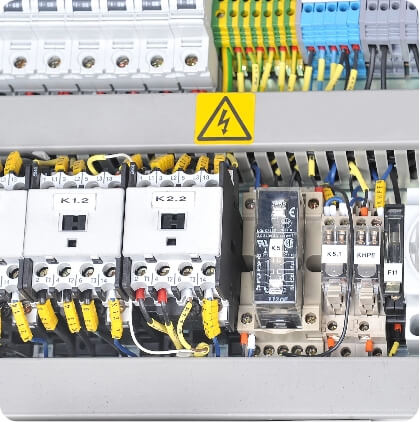
What Is An Efficient Electrical System?
An efficient electrical system embodies well-designed infrastructure and proper installation. This encompasses safety measures, energy efficiency, and adaptability to future technologies. Strategic placement of switches, outlets, and circuitry also contributes to its effectiveness.
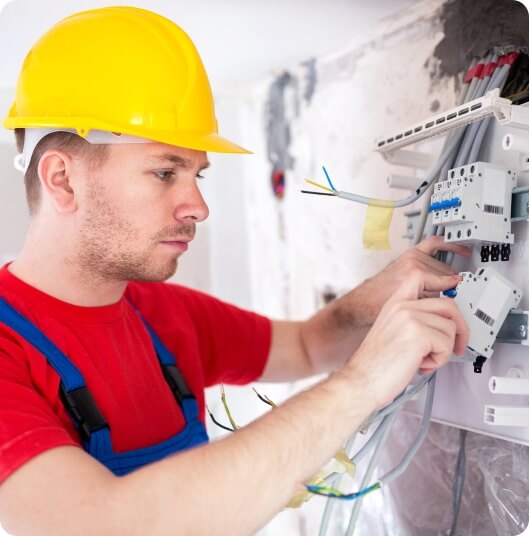
Regular Inspections For Safety And Functionality?
Regular inspections of your home's electrical system are indispensable. Preventive maintenance safeguards your home and family by identifying potential issues and ensuring secure wiring connections. These measures mitigate risks and prevent larger complications.
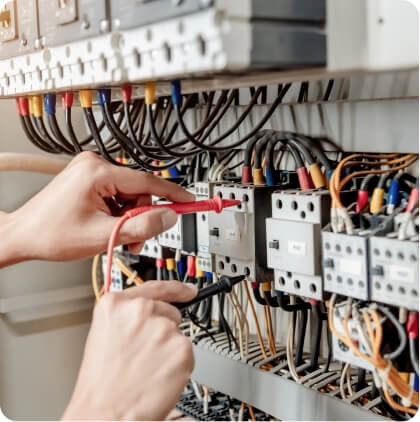
Benefits Of A Properly Functioning Electrical System
Your home's functionality is intertwined with electricity. Routine inspections play a pivotal role in preempting hazards and maintaining optimal operational capabilities.

Driving Technological Advancements
Regular inspections of your home's electrical system are indispensable. Preventive maintenance safeguards your home and family by identifying potential issues and ensuring secure wiring connections. These measures mitigate risks and prevent larger complications.

Key Benefits Of A Proper Electrical System:
Safety
Mitigates electrical hazards, reducing risks of shock, burns, or accidents.
Energy Efficiency
Optimizes consumption, minimizes environmental impact.
Smart Energy Management
Enhances efficiency, reducing utility costs via intelligent control.

Technology Integration
Facilitates integration of emerging smart technologies.
Home Value
Boosts home value with energy-efficient features and code compliance.
ROI
Energy-efficient upgrades yield long-term savings, offsetting initial costs.
Health and Well-Being
Proper energy usage improves indoor air quality and comfort.

Lifestyle Enhancement
Modern systems enhance convenience and eliminate clutter.
Environmental Impact
Reduces carbon footprint by decreasing energy usage.
Fire Prevention
Ensures safe operation, mitigating the risk of electrical fires.
Optimizing your home's electrical system isn't just about functionality; it's about safety, efficiency, and contributing to a greener future.
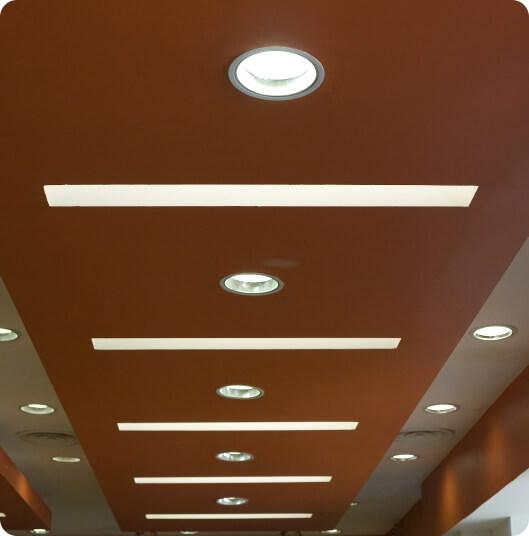
Addressing potential electrical issues before they become hazards is a preventative measure that will give you the peace of mind knowing that your home and family are safe. By following these simple steps, you can ensure that your home’s electrical system is up to par and significantly reduce the risk of fire or injury
- Have a licensed electrician (such as ones employed by Honey Do Men) regularly assess your home’s electrical system to make sure nothing is damaged and that it is in good working condition.
- Ensure your electrical system is up to code.
- All electrical work should always be done by a licensed electrician.
- Be conscious of anything that can strain your electrical system, such as using too many appliances at one time or overloading circuits.
- Make sure all electrical circuits are properly grounded.
- Replace any plugs that don’t fit properly into sockets.
- Never place furniture, carpet or rugs on top of electrical cords.
- Blown fuses, flickering lights or tripped breakers are indicators that a professional electrician should assess your electrical system to identify the cause.
- If you hear a buzzing sound when you turn on the lights or an electrical device or notice a burning odor, contact a professional electrician immediately.
- Never place plugged in electronics or appliances near water. When cleaning, always unplug first.
- Always unplug extension cords when not in use as leaving them plugged in increases the risk of electrical fire.
- If you have children or grandchildren who live with or visit you, install childproof, tamper-resistant outlets.
- Any frayed or damaged wires must be replaced immediately in order to prevent electrical shocks, electrocution or fire.
- Test smoke detectors and replace batteries once per year.
- Install a surge protector to ensure your appliances and electronic devices are protected.
- Reset your home’s GFCI (ground fault circuit interrupters) at least twice per year.
- Reset your home’s GFCI (ground fault circuit interrupters) at least twice per year.
- Never use extension cords to power high voltage equipment (such as air conditioners and large appliances.)
- Never overload outlets (receptacles).
- Never overload outlets (receptacles).
- Never leave appliances unattended when in use.
- Always follow the recommended wattage for all light bulbs and fixtures.
Making sure your electrical system is up to code can also help to prevent electrical fires and other serious hazards. One of the worst things you can do is wait until it’s too late. By following simple safety rules, using energy efficient appliances and performing regular inspections on your home’s wiring, you can be confident you are taking the right steps in protecting your home and family.
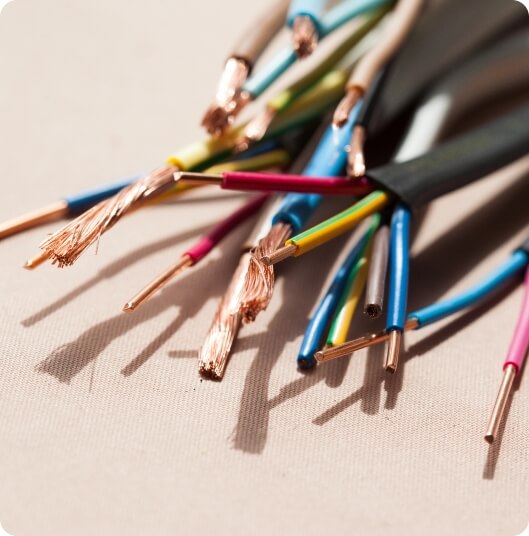
Electrical Wiring
Electrical Wiring
NM (Non-Metallic/Romex) Cable
The most common type of wiring and is used only in dry, protected areas.
BX (Armored) Cable
BX (Armored) Cable
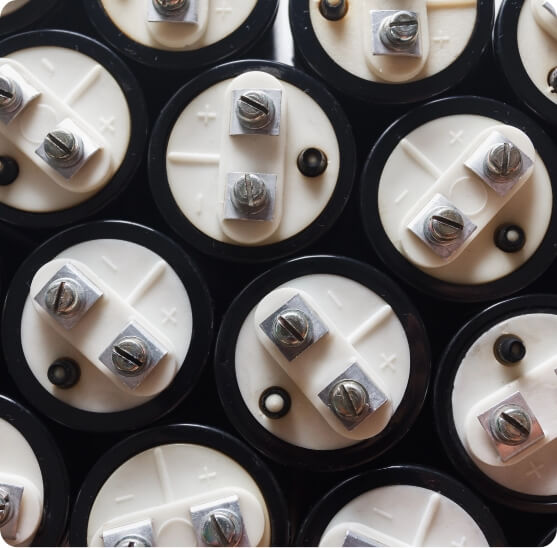
Conduit
A metal (or plastic) tube that protects individual insulated wires commonly used in garages or other outdoor areas where the wiring must be protected from exposure. There are two types of conduit wiring:
- Surface Conduit Wiring (exposed)
- Concealed Conduit Wiring (hidden)
Cleat Wiring
Typically used in commercial buildings, cleat wiring Includes PVC wiring and VIR wires to use in ceilings and walls.
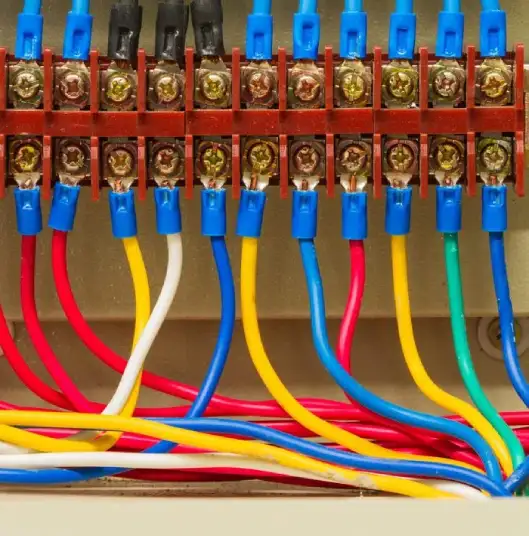
Casing and Capping Wiring
Insulated PVC wires typically used in the past. This type of wiring may still exist in older homes but have been replaced by insulated PVC wires in modern electrical upgrades.
Batten Wiring
A single cable or bundle of cables enclosed in a wood batten.
Lead Sheath Wiring
Enclosed in a metal sheath (lead or aluminum) that protects the wires from damage.
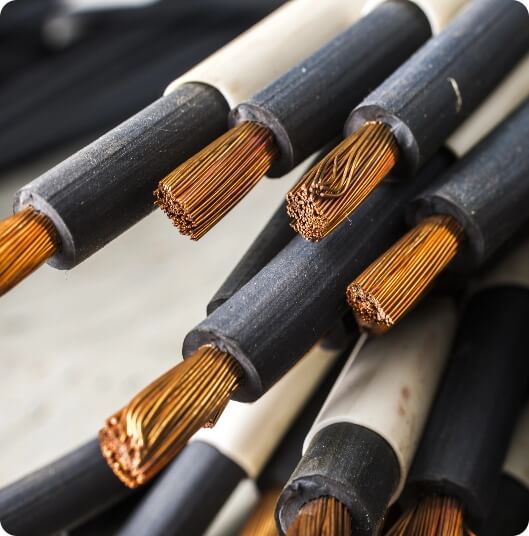
Wires should never be exposed to moisture or humidity as it can lead to damage and can cause shock or electrocution. In addition, when electrical wiring isn’t properly maintained, it can lead to dangerous (and costly) problems such as short circuits or faulty connections which can ignite or pose a serious safety hazard.
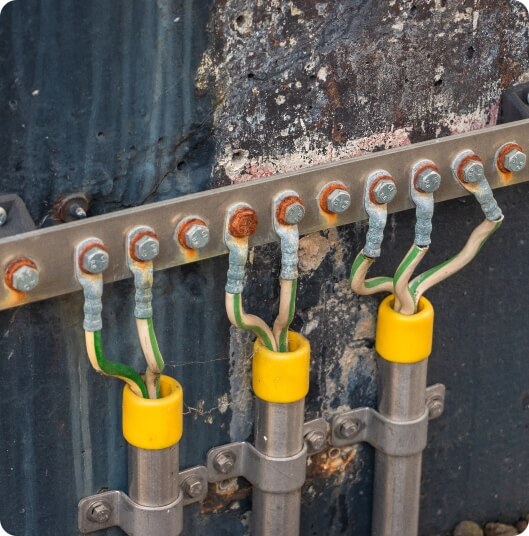
Grounding
Grounding makes it easier to properly distribute power throughout an electrical system and helps prevent dangerous surges. Your home's wiring is powered by electrical current. The flow of the electrical current travels throughout your home by a complex web of wires. When a house is grounded, it provides electricity into the ground and not into the house (which would likely cause damage). Grounding is considered a great natural surge protector.
If your home contains three-pronged outlets, your home is grounded. The third circular hole in the outlet is to ground the outlet. Never use a three-prong adaptor assuming it will ground your house. It won’t.
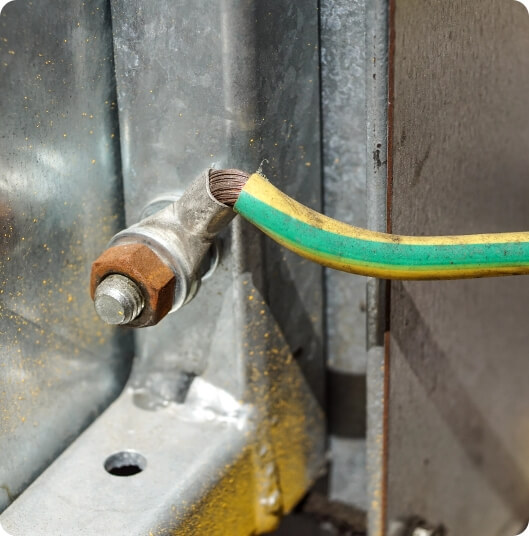
Importance Of Grounding
Incorporating proper grounding plays an invaluable role in your home’s overall safety and prevents the overloading and overheating of circuits. Improper, or lack of, grounding can lead to serious hazards such as electrical shocks, fire or electrocution.
Additionally, proper grounding functions as a natural surge protector. It diverts the extra voltage generated by lightning strikes or fluctuations in power away from your home's internal systems, reducing the risk of damage to appliances and sensitive electronics
Without proper grounding, the excess electrical current from an appliance or electrical device plugged into a wall socket won’t move into the ground. Instead, the current can run back into the appliance or device and create a shock, fire or electrocution. Ungrounded outlets are a common source of high voltage electrical shocks which can also run through the appliance or device.
Regardless of the age of your home, it’s important to be on the lookout for indications of improper (or lack of) grounding that include, but are not limited to:
- Regardless of the age of your home, it’s important to be on the lookout for indications of improper (or lack of) grounding that include, but are not limited to:
- Getting an electrical shock when you touch metal in the house
- Breaker trips
- Lines on computer monitors or television screens
In conclusion, grounding is a foundational aspect of electrical safety and system stability, enhancing the overall reliability of your electrical infrastructure.
Understanding Basic Electrical Terms
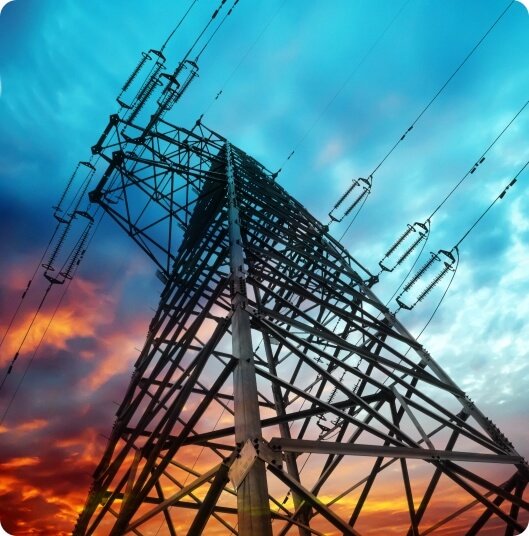
Alternating Current (AC) Power
Think of AC like a swinging pendulum. It's how electricity moves back and forth in your home. Transformers make it travel long distances.
Arc Fault Current Interrupting (AFCI)
This is like a superhero for electrical safety. It can sense dangerous sparks and stop them.
Appliance/Tool Grounding
You know that third prong on plugs? It's there to keep your devices safe.
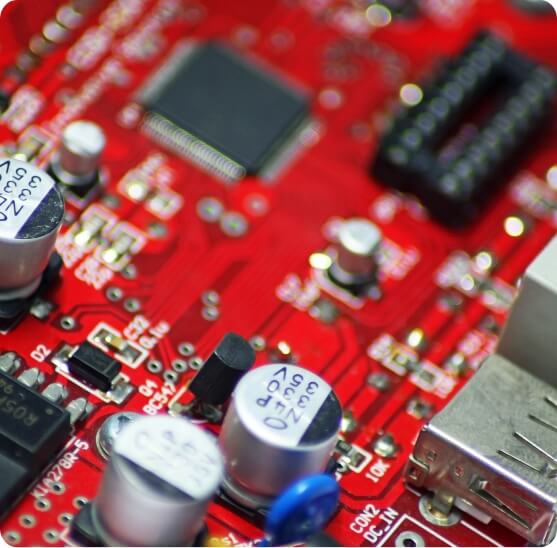
Arcing
Facilitates integration of emerging smart technologies.
Branch Circuits
Imagine these as the different paths that send electricity to specific things in your home, like lights or appliances.
Breaker
This is like a guard that watches over your wires. If too much electricity flows, it turns off to keep things safe.
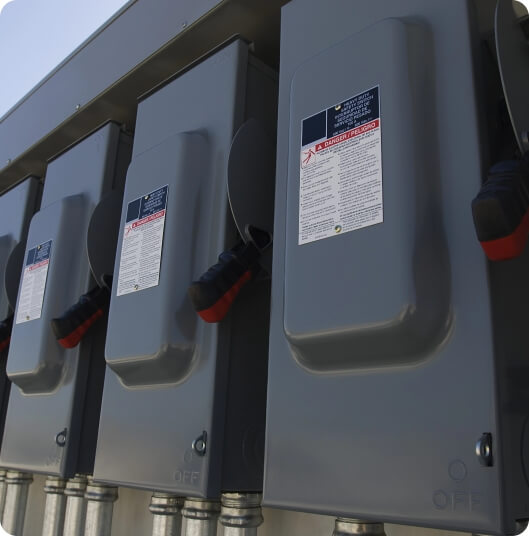
Circuit Overload
Ever trip a breaker by using too many devices at once? That's a circuit overload.
Electrical Box
This is like a home for the wires and connections, making sure they're safe.
Ground Fault
When electricity takes the wrong path, it can be dangerous. A ground fault keeps it on the right track.
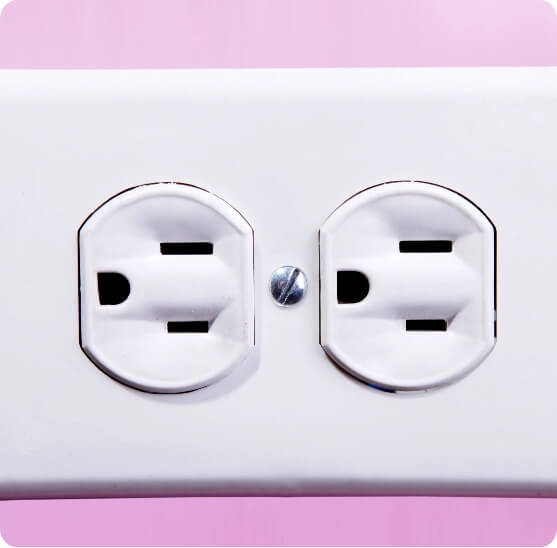
Outlet
It's not just the wall plug, but also any spot where electricity comes out.
Polarized Plug
These plugs have prongs of different sizes to fit in outlets one way, so things work properly.
Service Panel
This is like the control center for your home's electricity. It's where you can turn off power in an emergency.
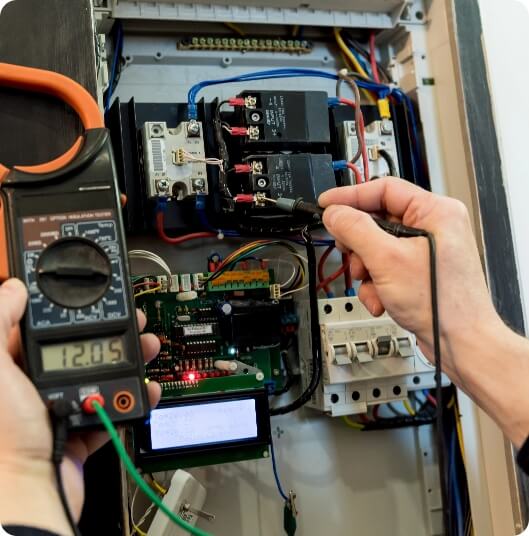
Short Circuit
When electricity takes a shortcut, it can cause problems. It's like taking a detour when you're driving.
Switch
A switch is like a traffic light for electricity. It turns it on and off.
Voltage
Think of voltage like the strength of water flow. More voltage means more power.
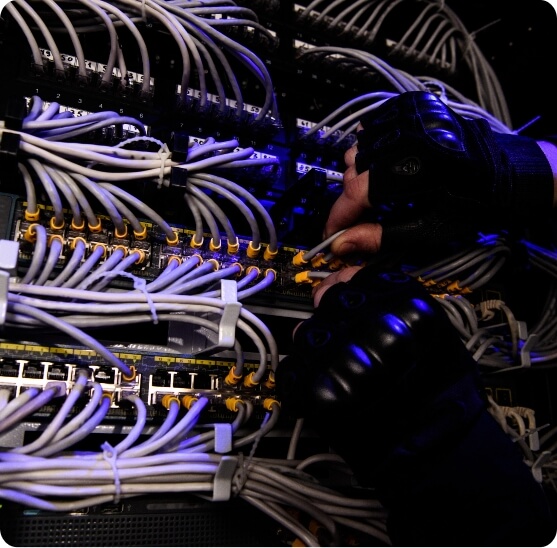
Wattage
This tells you how much energy your stuff uses. It's like how much gas your car needs to go.
Wire
Wires are like highways for electricity. They carry it to where it's needed.
Remember, you don't need to be an expert, but understanding these basics can help you stay safe and manage your home's electrical system better.
Considerations
Your home's electrical system is intricate, but it's important for every homeowner to grasp how it functions and the factors that can affect its proper operation.
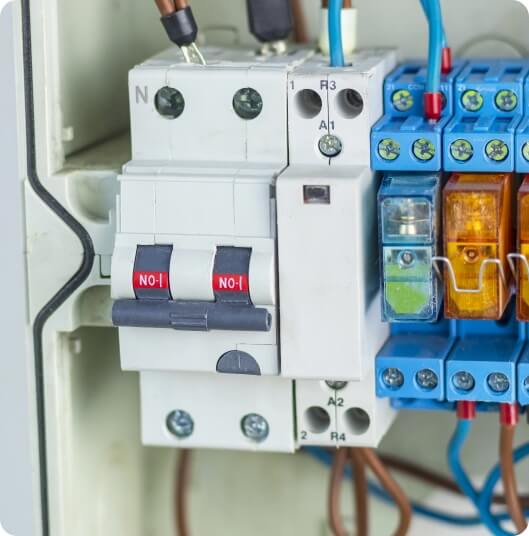
Inadequate/Outdated Electrical Systems
Outdated or malfunctioning electrical systems and components can pose serious hazards. Things like frayed wires, discolored outlets and switches, improper circuit design and inadequate grounding can result in fire, electric shock or electrocution/death.
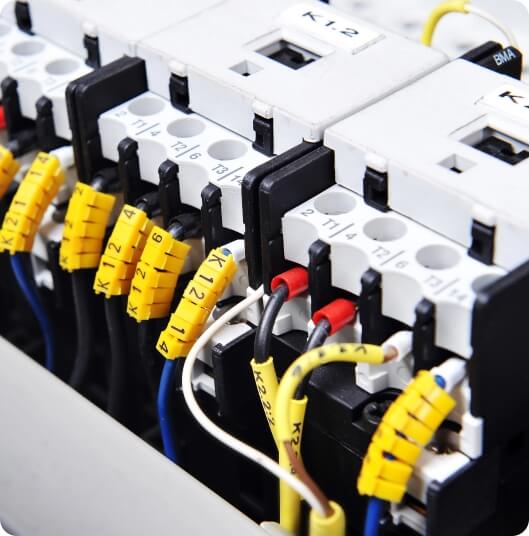
Electric Utility Company Programs
Many electric utility companies offer energy efficient programs to help guide homeowners and businesses reduce their energy usage. Check with your utility provider to see what is available in your area.

Age Of Home
If you own an older home, it’s especially important to have your home’s electrical system examined because most of the wiring is hidden. Only a professional electrician can help uncover signs of electrical damage or failure.
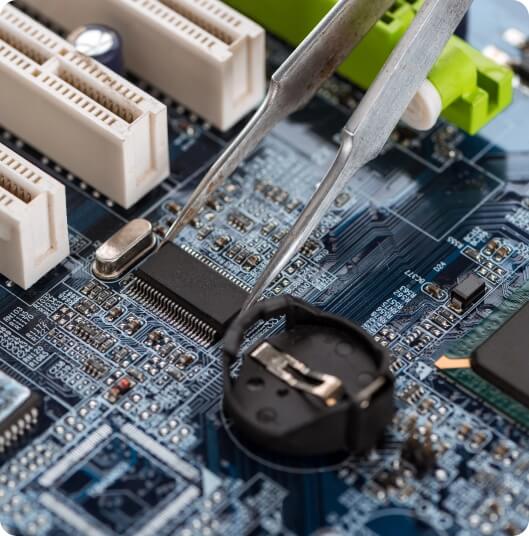
Circuit Overloads
The most common cause of a tripped breaker is the overuse of appliances and electrical devices at one time. Moving an electrical device or appliance to another circuit and resetting the breaker (by switching to the on position) should solve the problem. If the circuit breaker trips again, contact a licensed professional such as Honey Do Men immediately.
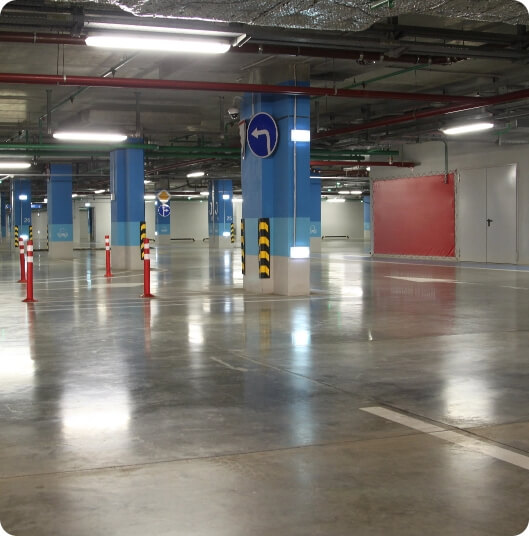
NEC Guidelines
According to NEC guidelines, GFCI outlets should be installed in garages, basements or receptacles that are within 6’ of water in new construction. Safety is the primary consideration for any homeowner considering changes to their electrical system. Always consult with a licensed professional such as Honey Do Men who is familiar with all NEC guidelines and other code requirements.
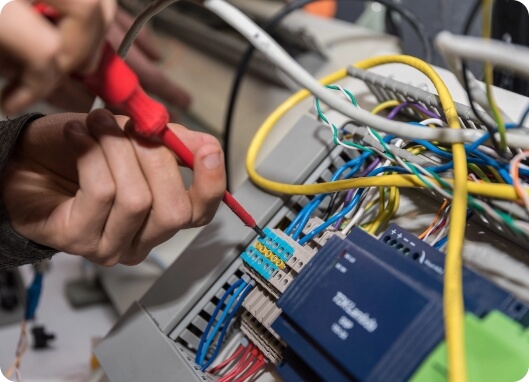
Fire Hazards
Overheated and shorted circuits can cause excessive heat, which can cause insulation to ignite and trigger a fire. When your electrical system isn’t functioning properly, the risk of fire dramatically increases.
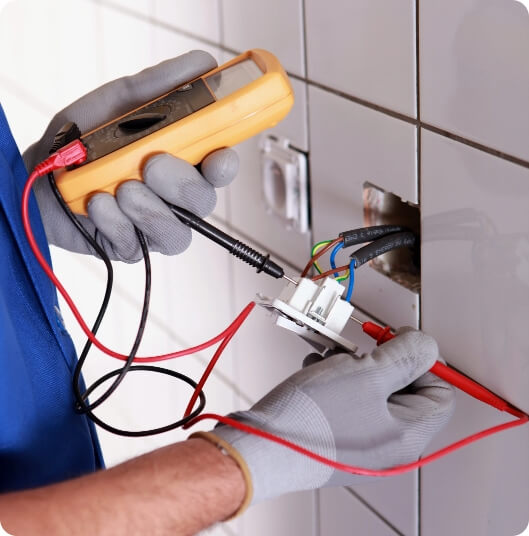
Code Compliance
If your electrical system doesn’t meet all local electrical code standards, not only can it pose serious safety threats to your home and family, it can also lead to costly legal issues. To mitigate these risks, it’s important to invest in a well designed electrical system.
Most of your electrical system is hidden, so there is a good chance that you won’t be aware of a serious problem until it becomes one. Improper grounding, faulty wiring and inadequate insulation are examples of things that violate codes and regulations. Always use a licensed professional who is familiar with all electrical codes and regulations.
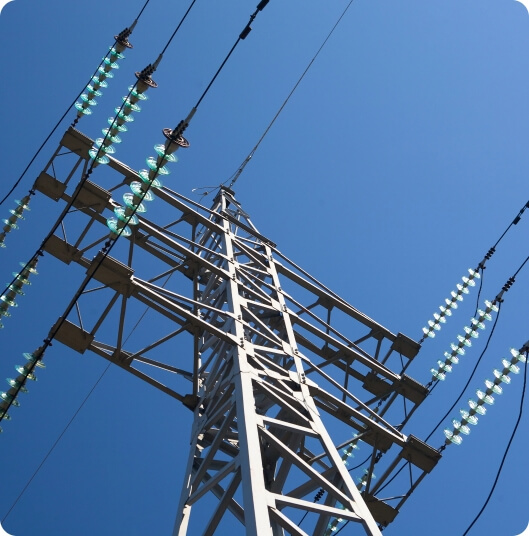
Energy Flow
Electricity is constantly flowing in utility lines and the electric meter unless it is shut off by the utility company. In addition, electricity is continually running through your home’s service panel even when the main circuit breaker is shut off. The only way to completely stop electricity from running into your home is via the disconnect switch.

Energy Consumption
Outdated or inefficient electrical systems contribute to wasted energy consumption which leads to excessive energy usage. Updating your home’s electrical system and layout can decrease your carbon footprint and reduce utility bills. Small updates such as installing motion sensors and efficient lighting systems are great ways to optimize your home’s energy consumption.
Keep in mind that energy usage is generally proportional to an energy efficient upgrade. For example, replacing your old incandescent light bulbs with energy efficient LED smart light bulbs could deliver considerable savings.
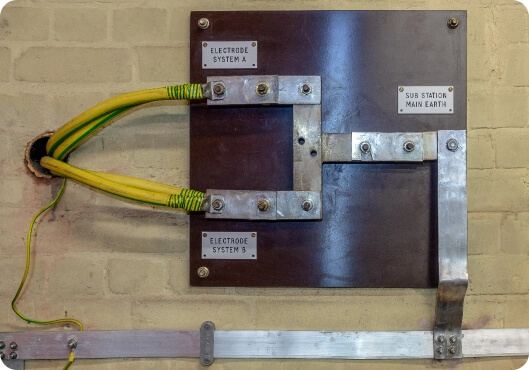
Grounding Systems
Not all homes have elaborate grounding systems. Homes built prior to 1965 use metal conduits or metal cables instead of bare copper wires.
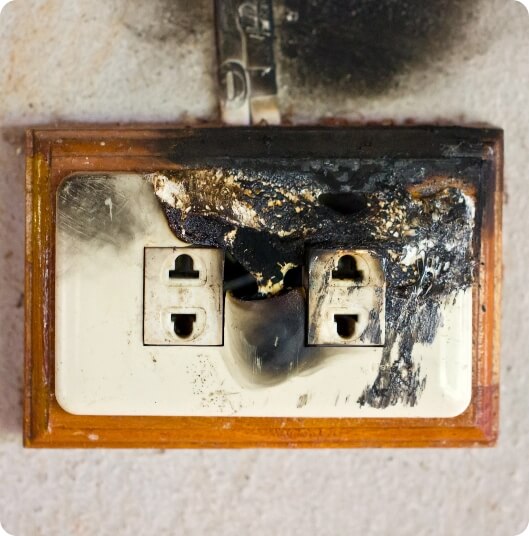
Electric Shock
Electric shock is a very serious hazard that can occur any time when basic electrical safety guidelines are not followed. Electric shock happens when someone comes into contact with a live electrical current which can result in burns or even death.

Renovations/Home Upgrades
Before embarking on a home renovation project, have a licensed electrician assess your home’s electrical system. Many times homeowners don’t realize that their existing electrical systems are not capable of handling the intended changes. This is especially important if you are planning to replace outdated appliances or electrical devices.
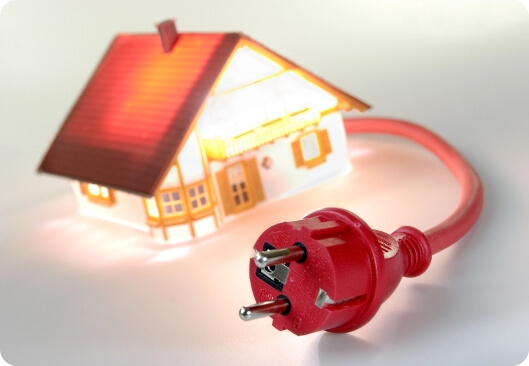
Power Interruptions
Power interruptions are a common result of the inadequate distribution of electricity. Overloaded circuits can cause circuit breakers to trip and can lead to equipment damage and operational disruptions.

Commercial Structures
All commercial components require specialized equipment and expertise. Before embarking on any electrical updates, it’s important to find a qualified electrician who specializes in commercial work.
All commercial components require specialized equipment and expertise. Before embarking on any electrical updates, it’s important to find a qualified electrician who specializes in commercial work.
From minor repairs to full electrical system installations, Honey Do Men is here to help with all of your electrical needs. Our staff of experienced professionals are uniquely qualified to work on both new and existing residential and commercial electrical needs. Our electrical services include, but are not limited to:
- Electrical system installation, repair, rewires and remodels
- Electrical system assessment and analysis
- Smart devices and appliances
- Video doorbells and security cameras
- Electrical panels
- Electric vehicle (EV charging stations)
- Generators
- Surge protectors
- Circuit breakers
- Automatic transfer switches
- Ceiling and exhaust fans
- Landscape lighting
- Security lighting system timers, photocells and motion detectors
- LED lighting
- GFCI/AFCI
- GFCI/AFCI
- Heating cables
- HVAC systems
- Outdoor entertainment systems
- Outdoor entertainment systems
- Commercial electrical systems
Call us today to schedule a free assessment. Honey Do Men is committed to giving you the peace of mind knowing that your home is safe, secure and energy efficient.
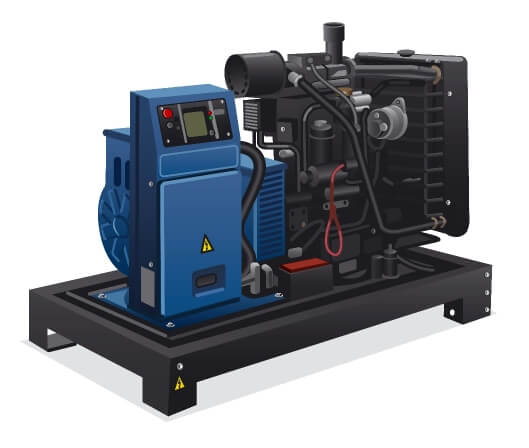
Generators:
Electricity is a cornerstone of our daily lives, and when it's absent, our homes can't function properly. As we rely so much on electricity, the popularity of home generators has risen. To make an informed choice about generators, it's crucial to understand their types and functionality.
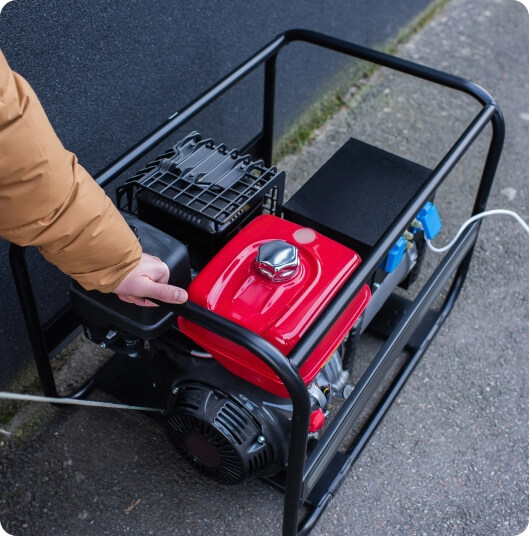
Types Of Generators:
Portable Generators:
These smaller units can power appliances but need to be used outdoors due to gas operation. Never use indoors to avoid carbon monoxide risks.
Battery Backup Generators:
They power specific appliances or an entire home using stored battery power. Note that the battery's life determines how long they run.
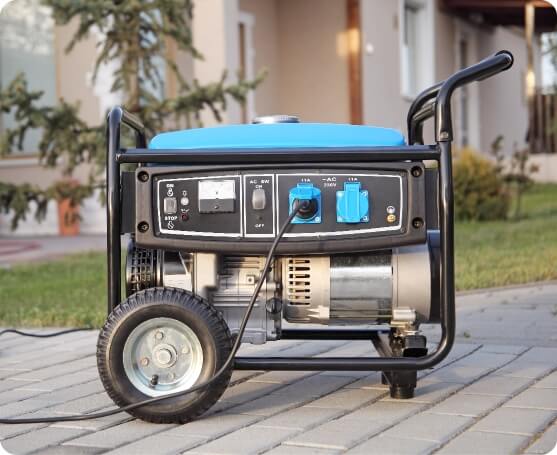
Inverter Generators:
These quieter devices are more complex and suitable for sensitive electronics.
Home Generators:
Also called standby generators, they automatically kick in during power outages and run on gas. They are permanently installed outside the home.
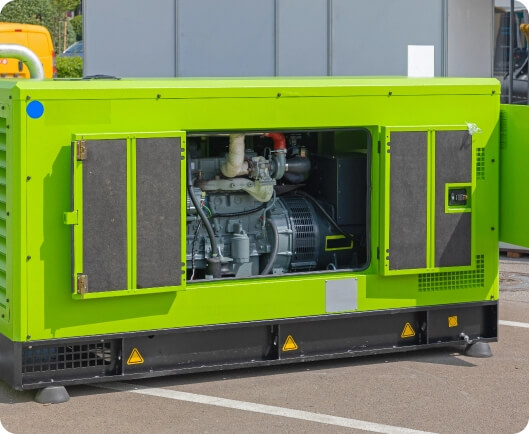
Benefits Of Home Generators:
Convenience:
Home generators start and stop automatically, even when you're away.
Reliability:
They keep critical appliances running and prevent basement flooding by keeping the sump pump operational.
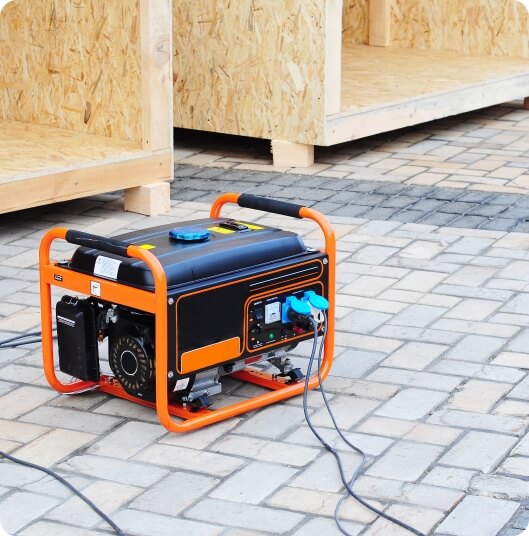
Extreme Weather Protection:
They safeguard against damage during prolonged outages caused by extreme weather.
Temperature Control:
Home generators ensure your heating and cooling systems operate, even in emergencies.
Water Filtration:
Your water system remains functional, providing safe water for various needs.
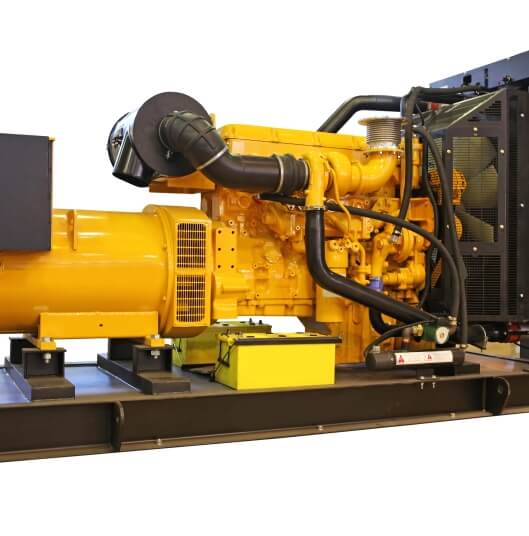
Medical Devices:
Essential for households with medical devices requiring electricity.
Seasonal/Vacation Homes:
Home generators protect your second property from power disruptions.
Remote Work/Home Business:
They keep your operations going, even during outages.
Electric Vehicles (EVs):
Ensure your EV remains charged for transportation.
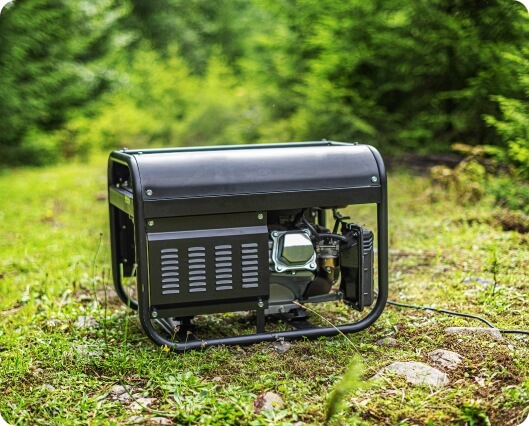
Considerations Before Getting A Generator:
Operation:
Fuel costs and availability should be considered. A generator won't work without fuel.
Yard Space:
Yard Space:
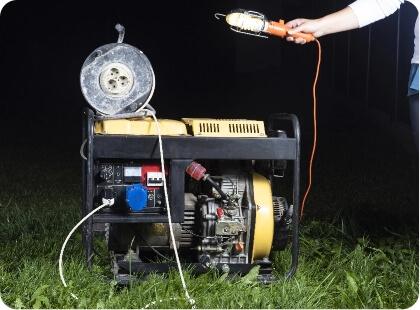
Expense:
While not used daily, their benefits during outages can make them a valuable investment.
Noise:
Check local noise ordinances as generators can be noisy.
Maintenance:
Even if not used often, regular maintenance is vital for proper functioning during power outages.
If you're thinking of getting a home generator, reach out to us for a complimentary consultation. At Honey Do Men, we have extensive experience in installing and repairing generators of all types and sizes. Keep your home powered and secure with a reliable generator solution.
TESTIMONIALWhat Our Customers Say About Us
Common Electrical Questions
To safely reset a tripped circuit breaker:
- Locate the Breaker Panel: Find your home's main breaker panel, which is usually located in the basement, garage, or utility room.
- Identify the Tripped Breaker: Look for a breaker that is in the "off" position or between "on" and "off". It might also have a red or orange indicator.
- Turn Off Appliances: Turn off or unplug appliances and electronics on the affected circuit to prevent overloading when you reset the breaker.
- Reset the Breaker: Move the breaker to the "off" position first, then switch it back to the "on" position. You should hear a click.
- Check the Circuit: Once reset, check to see if power is restored to the circuit. If the breaker trips again immediately, there might be a short circuit or other issue that needs professional attention.
- Avoid Overloading: After resetting, avoid plugging in too many devices to the same circuit to prevent future trips.
To Schedule A Complimentary Consultation With One Of Our Specialists
Give us a call today.
Contact us
